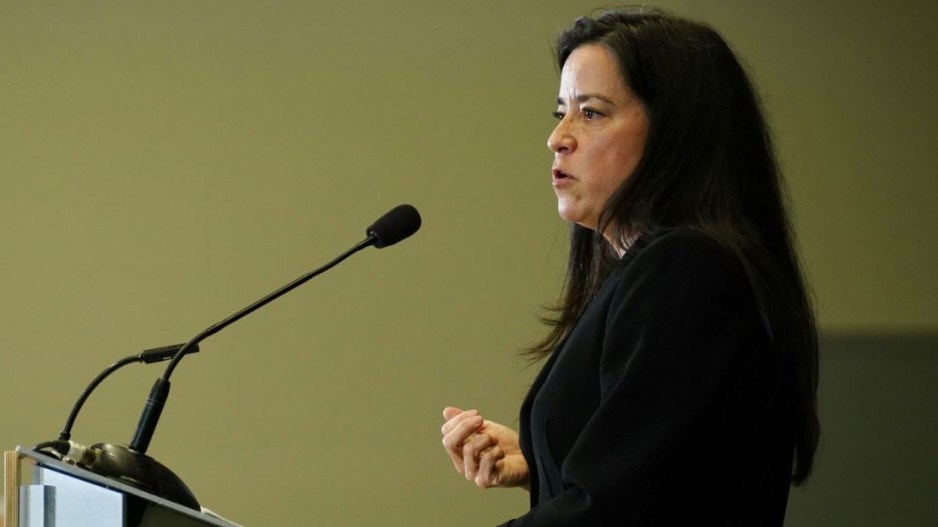Since she last spoke at the Association of Mineral Exploration (AME) Roundup conference about 10 years ago, Jody Wilson-Raybould, who was Canada’s first indigenous minister of Justice and Attorney General, said a lot has changed on the political, legal and social landscape when it comes to First Nations and reconciliation.
Federal and provincial governments have embraced the United Nations Declaration on the Rights of Indigenous Peoples (UNDRIP), there have been grim revelations about mass graves at the site of Indian residential schools, and landmark court decisions that firm up, but never fully resolve, aboriginal title and treaty rights.
And in resource sectors, industry has been taking a more active role in economic reconciliation by developing partnerships with First Nations.
But there are still legal and material gaps or obstacles – the Indian Act, being one – to the nation-building needed on the road to reconciliation. Until those gaps are addressed, UNDRIP may be mere symbolism that arms lawyers with ammunition to launch ever more legal battles over issues like consent.
“Some provincial land resources statutes are still written simply as if indigenous peoples do not exist," Wilson-Raybould noted.
While there is some important symbolism in governments adopting UNDRIP, Wilson-Raybould said it’s “not the core of the real work” of reconciliation with indigenous people.
“The UNDRIP legislation lacks what is really required – actual mechanisms to effect tangible change on the ground in communities,” Wilson-Raybould said.
“What is really needed are concrete tangible mechanisms for real transformative shifts, at scale, not one-offs, including mechanisms for supporting nation rebuilding and a self-directed...path out of the Indian Act.”
Wilson-Raybould was the keynote speaker Tuesday morning at a Roundup session on reconciliation.
The B.C. government views UNDRIP as an important step towards reconciliation. It has been adopted provincially through the Declaration on the Rights of Indigenous People (DRIPA). And in the coming weeks, Murray Rankin, B.C.'s minister of Indigenous Relations and Reconciliation, said his government will be unveiling a new action plan for its implementation.
“Every single ministry of our government has something in there that they must do, and will be held accountable,” Rankin said.
Some companies have already embraced the idea that they need to work with First Nations as partners. Those that have taken that approach tend to be more successful than those that don’t.
“A thriving resilient and sustainable natural resource industry isn’t possible without prioritizing collaboration with First Nations,” Rankin said. “That’s a fact of life.”
Wilson-Raybould suggested industry could play a role as a kind of go-between to bridge divides between First Nations and government. She urged them to advocate not just for partnerships, but for nation-building as well.
“Advocate for and encourage government to do the real work on legislating and establishing mechanisms to support nation-building,” she said.
“Be ready to transition to working with nations as regulators, realizing there is more clarity and certainty in doing so. This is the future, especially in those geographical areas where mineral exploration is intense. I know many companies are already preparing for that future.”
She said a new fiscal relationship with First Nations is needed, “so that taxation and normal government forms of raising revenue are the foundation, rather than ad-hoc approaches.”
She added achieving clarity on governance and the question of who rightfully represents First Nations is also needed.
“The federal and provincial UNDRIP legislation does not do any of this, so this work still must be done,” she said.




